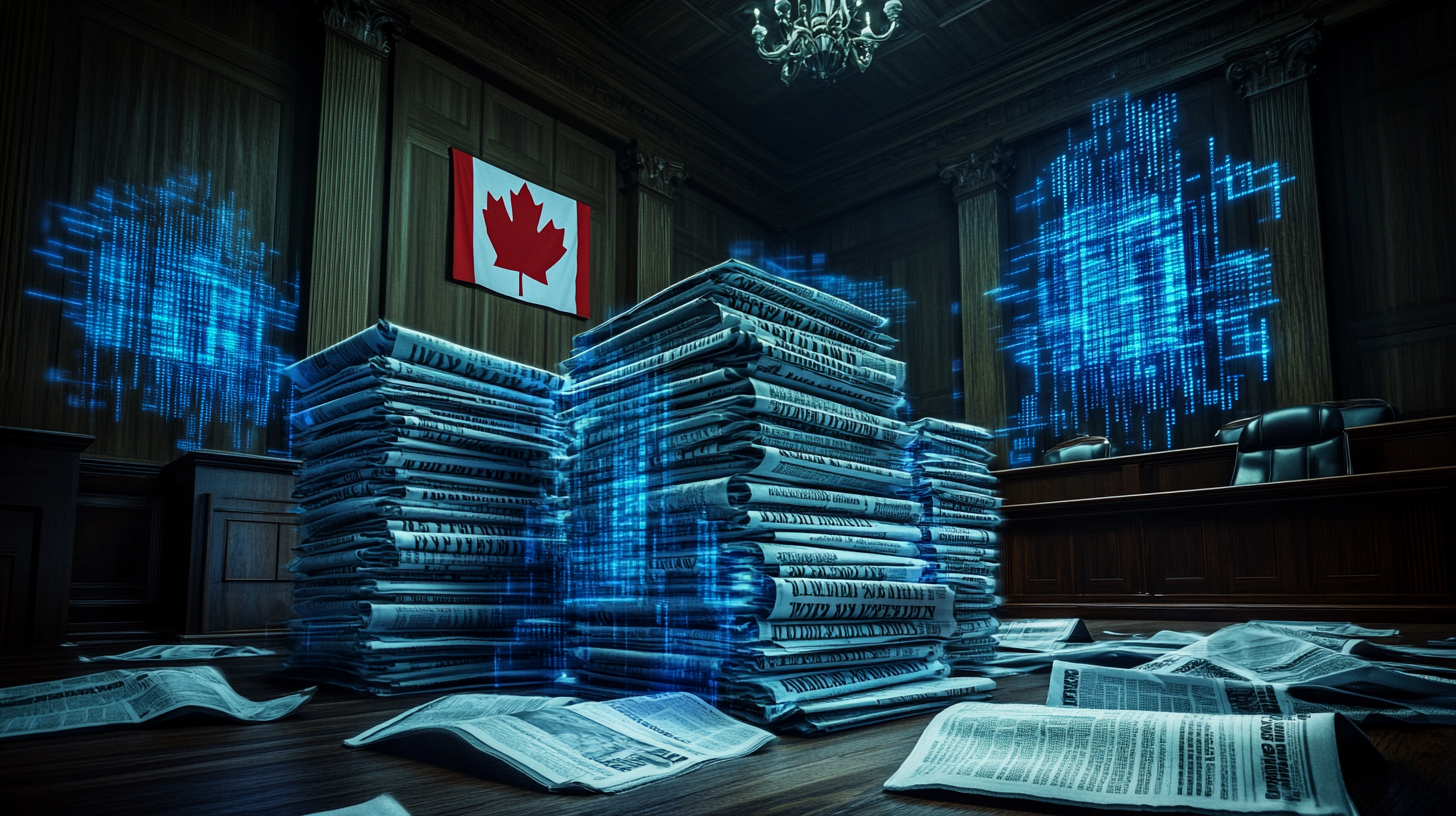In an unprecedented move, a consortium of Canada’s most influential media companies have launched a lawsuit against OpenAI, the renowned artificial intelligence research lab. They allege that OpenAI’s use of their journalistic content to train its models, particularly ChatGPT, is “inappropriate and illegal”. This marks a significant escalation in the ongoing battle between media companies and AI firms over the scraping of online content.
The Lawsuit
Media conglomerates, including the owners of the National Post and Toronto Star, The Globe and Mail, The Canadian Press, and CBC/Radio-Canada, have joined forces against OpenAI. They allege that OpenAI has infringed on their copyrights by using their journalistic content without permission or compensation. The group is seeking damages and an injunction against OpenAI from using their articles to train its AI models in the future. The plaintiffs are asking for up to C$20,000 for each article used, which could potentially amount to billions.
Expert Analysis
This case brings to the forefront the complex issues surrounding copyright infringement and AI. “AI models learn by training on large amounts of data, and in this case, that data is the copyrighted content of these media companies,” says Dr. Emma Spiro, an information science expert. Indeed, the crux of the issue rests on whether the use of copyrighted material for AI training constitutes fair use or a violation of copyright.
Technical Details
Machine learning, a subset of AI, involves training algorithms on large datasets so they can make predictions or decisions without being explicitly programmed. OpenAI’s ChatGPT is a large language model that uses machine learning to generate human-like text. It has been trained on a diverse range of internet text, and it seems that some of that text was sourced from these Canadian media outlets, thus sparking the lawsuit.
Implications and Future
The outcome of this lawsuit could set a significant precedent for the use of online content by AI companies. If OpenAI is found guilty, it could lead to a reevaluation of how AI models are trained and could potentially inhibit AI research. Alternatively, if OpenAI is exonerated, it could embolden AI companies to continue using online content freely. Regardless, this lawsuit underscores the urgent need for clear legal guidelines on AI and copyright infringement.
- The lawsuit represents a notable escalation in the media industry’s fight against AI companies.
- The crux of the issue is whether the use of copyrighted material for AI training constitutes fair use or a violation of copyright.
- The outcome of this lawsuit could set a significant precedent for the use of online content by AI companies.

